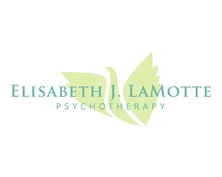Our Approach to Therapy
|
In a society that emphasizes superficial values and material accomplishments, the development of increased self-awareness, healthy self-identity and the ability to build relationships based on mutual respect are essential for a life of quality and fulfillment.
|
Improve RelationshipsWe teach concrete relationship skills that help clients build stronger,
happier, more intimate relationships with family, friends and romantic partners. If you are experiencing a difficult break-up, a divorce, or the painful discovery of infidelity, we will help you work through the many levels of loss that are common to such challenges. We help our clients find opportunities for growth in spite of these painful scenarios. If you want to improve your marriage or seek pre-marital counseling, our approach considers each partner as an essential player in the relationship’s strengths and weaknesses. We teach relevant psychological theories to help you work on both yourself and your relationships. |
Set and Achieve GoalsWhether you are looking to build self-esteem, become a better communicator, manage anxiety or relieve depression, we work with clients to set concrete goals and take clear steps to achieve them. In addition, we help clients gain insights necessary to improve their lives.
We also suggest resources so that the therapy is happening not just in our office, but outside of the office, in your lives. To this end, we will suggest books, films and on-line resources that are tailored to the needs and interests of each client. |
Individual TherapyYou may be wondering, what exactly is psychotherapy and how can it be helpful? One
way to think about it is that therapy is a process of determining your “usual.” In other words, figuring out exactly how you operate in the world, in your relationships and in your career. And then, through a combination of insight development and increased understanding of psychological theories and how they apply to you, figuring out what parts of your usual work well for you, and what parts you may want to change. Many enter therapy because something has changed. Either a relationship has ended or shifted, a new relationship is beginning, something has changed at the office, a loved one has become ill, infidelity has been discovered, an important friendship has changed, a wedding date or another important upcoming occasion is causing anxiety, or any number of significant other life events are causing heightened emotions and/ or symptoms. Common symptoms include anxiety, depression, reduced or increased sleep, reduced or increased appetite, or lack of concentration. We have experience with all of these scenarios and know how to help people adjust to and effectively address whatever changes or life events have led them into therapy. We work with clients to set clear goals, teach communication enhancement and apply relevant psychological theories to help them meet their stated goals and build happier and more fulfilling lives. Individual psychotherapy facilitates the development of insight about the underlying causes of depression and anxiety that may be holding one back from leading a productive and fulfilling life. Through establishing clinical goals and practicing new behaviors, adults can begin to reduce depression and anxiety, build self-esteem, and develop a productive self-identity. |
Couples TherapyCouples psychotherapy emphasizes strategies for understanding and reducing unproductive
relational patterns, strengthening communication skills, and enhancing relational intimacy. Couples frequently enter therapy because their career or child rearing demands have strained the marriage, because infidelity has occurred, because wedding planning is stressful, or because they need to improve their communication skills, rekindle their sex life or increase their degree of emotional intimacy. We have worked intensively and successfully with couples addressing each of these issues. Couples begin by setting goals for areas in the relationship where they feel that change would be helpful. They work to gain insight about all that they contribute to their relationship. In other words, they pinpoint their part in what makes the relationship work well, and their part in the relationship’s challenges. Then, together, the couple works to build on the relationship’s strengths and address the challenges. Our approach to couples therapy emphasizes that blame is not productive, and that sometimes a willingness to focus on yourself is the key to greater intimacy and happier relationships. Communication enhancement is central to our approach to couples therapy, and we teach and practice various psychological theories and communication tools to help couples say what they need to say to one another in healthy, kind, thoughtful ways. |
Group TherapyGroup psychotherapy provides a room of mirrors through which adults can begin to see the communication and relational patterns that are not serving them well. It offers an opportunity to work together to enhance the capacity for intimacy and to build a stronger sense of self.
Groups run anywhere from five to nine months, and include five to seven members. Confidentiality is the most important rule of the group, and confidentiality contracts are signed and discussed in detail during the first group session. Most clients do not enter therapy looking to participate in a group. However, if they choose to participate, they typically find the process incredibly helpful. Why? Because there is something powerful about hearing what your material brings up for others, and in noticing what other people’s material elicits in you. Group therapy can increase the pace through which individuals develop insights about themselves and then turn these insights into action. In other words, group therapy frequently speeds up the process through which clients meet their goals and make necessary changes in order to have a happier life. Group therapy is also more affordable than individual or couples therapy. |




